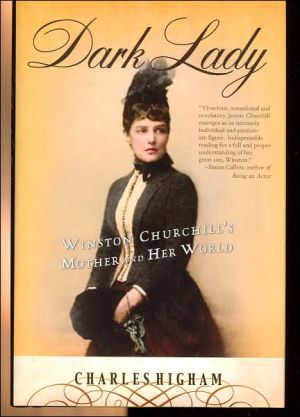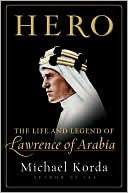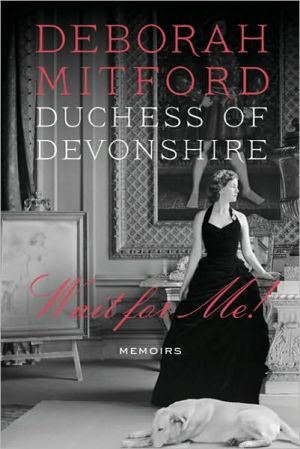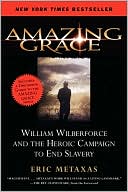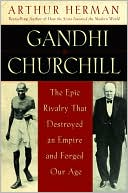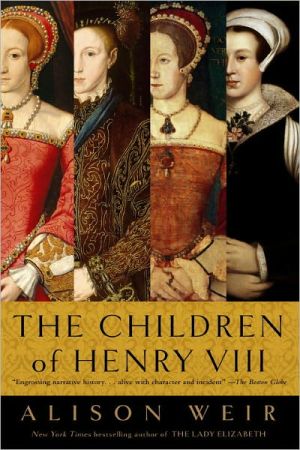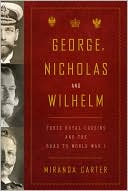Dark Lady: Winston Churchill's Mother and Her World
In this sensational new book, bestselling author Charles Higham draws from previously overlooked sources in America and Britain to tell the fascinating story of Jennie Jerome, mother of Winston Churchill — feminist, advocate of Irish independence, and notoriously promiscuous society belle. It charts her luxurious New York upbringing, eyebrow-raising entry into the British aristocracy through marriage to Lord Randolph Churchill, her endless line of liaisons with much younger men and a very...
Search in google:
In this sensational new book, bestselling author Charles Higham draws from previously overlooked sources in America and Britain to tell the fascinating story of Jennie Jerome, mother of Winston Churchill — feminist, advocate of Irish independence, and notoriously promiscuous society belle. It charts her luxurious New York upbringing, eyebrow-raising entry into the British aristocracy through marriage to Lord Randolph Churchill, her endless line of liaisons with much younger men and a very different sort of affair in the highest of places — with the Prince of Wales, the future King Edward VII (one of many kings and princes to win her affection). Long before women had the vote, Jennie broke the rules by campaigning in elections for her husband, Lord Randolph Churchill. A staunch freethinker, she edited her own magazine, fought for Protestant interests in Ireland and sailed a hospital ship to South Africa, where she risked her life in the Boer War. Passionately in love with life, expressive of her sexuality when women were supposed to hide it, beautiful and independent minded, Jennie Churchill was decades ahead of her time. Publishers Weekly It would be difficult to write a tedious account of beautiful and appealing Jennie Jerome (1854-1921), who gave birth to future British prime minister Winston Churchill, but celebrity biographer Higham (The Duchess of Windsor) has managed to do just that. In gossipy but unexciting prose, he details the minutiae of Jennie's birth and childhood in Brooklyn, N.Y., as the daughter of Leonard Jerome, a corrupt and criminal investor who frequently traveled in Europe. In 1874 Jennie, against the family's opposition, married Lord Randolph Churchill, who, with his wife's eager backing, became deeply involved in English politics. The couple spent much of their time in and out of sexual liaisons and scandals until Randolph's death in 1895. They also ran up huge gambling debts. Jennie married twice more (the second union ended in divorce) to much younger men. The author's attempt to turn a flashy, compulsively promiscuous socialite into an early feminist fails miserably, although the fact that Jennie established a magazine and built a hospital for wounded troops during WWI is of interest. Winston, who was conceived before his parents' marriage, makes brief appearances. Replete with sensational details, this account nevertheless fails to bring its subject to life. Photos. (Feb.) Copyright 2006 Reed Business Information.
Chapter 1 1Chapter 2 17Chapter 3 27Chapter 4 34Chapter 5 54Chapter 6 75Chapter 7 109Chapter 8 135Chapter 9 158Chapter 10 170Chapter 11 204Chapter 12 219Appendix 227Acknowledgments 229Selective Bibliography 232Notes on Sources 236Index 242
\ Publishers WeeklyIt would be difficult to write a tedious account of beautiful and appealing Jennie Jerome (1854-1921), who gave birth to future British prime minister Winston Churchill, but celebrity biographer Higham (The Duchess of Windsor) has managed to do just that. In gossipy but unexciting prose, he details the minutiae of Jennie's birth and childhood in Brooklyn, N.Y., as the daughter of Leonard Jerome, a corrupt and criminal investor who frequently traveled in Europe. In 1874 Jennie, against the family's opposition, married Lord Randolph Churchill, who, with his wife's eager backing, became deeply involved in English politics. The couple spent much of their time in and out of sexual liaisons and scandals until Randolph's death in 1895. They also ran up huge gambling debts. Jennie married twice more (the second union ended in divorce) to much younger men. The author's attempt to turn a flashy, compulsively promiscuous socialite into an early feminist fails miserably, although the fact that Jennie established a magazine and built a hospital for wounded troops during WWI is of interest. Winston, who was conceived before his parents' marriage, makes brief appearances. Replete with sensational details, this account nevertheless fails to bring its subject to life. Photos. (Feb.) Copyright 2006 Reed Business Information.\ \ \ \ \ Kirkus ReviewsAn admiring life of Jennie Jerome (1854-1921), Winston Churchill's aristocratic mother. Jennie was born into a family better fit to the Gilded Age decades later; her father was a speculator, even a swindler, who constantly cycled between boom and bust, riches and ruin. "Insecurity," Higham (Murder in Hollywood, 2004, etc.) writes portentously, "was the very air she breathed." You would not know it when the young adult, beautiful and clearly wealthy, arrived in England by way of France to conquer high society. There she met the son of the Duke of Marlborough, a weedy 24-year-old who "had not the musculature of most men of his age" but who carried himself with the proper nobility. "Jennie," Higham gushes, "was captivated as completely as any heroine of the French romantic novels popular during her years in Paris." The resulting romance was quick-so quick, the author whispers, that Winston Churchill may well have been conceived out of wedlock. Jennie and Randolph moved into a fixer-upper mansion and fell into the usual intrigues, most of them involving various sorts of odd sexual practices and serial adulteries. Higham's narrative finds the young couple plotting to blackmail the Princess of Wales here, spending themselves into near-bankruptcy there, and always seeking to accumulate influence and power. In this endeavor, Jennie seems to have been the more successful of the two; Higham credits her with bringing Burma into the British Empire, for which efforts Jennie, with Randolph at once secretary of state and "a useless playboy," was awarded the Order of the Crown of India. Jennie becomes somewhat more interesting once Randolph dies; Higham traces his decline to a neurological disorder, notthe old canard of syphilis. Like Elisabeth Kehoe's The Titled Americans (2004), Higham's account is too worshipful for comfort; it lacks the steel of biographies devoted to Jennie's famous son, and it could use it. Agent: Whitney Lee/The Fielding Agency\ \
